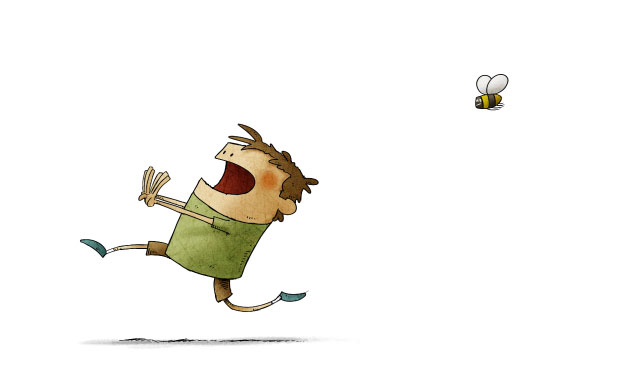
What is the difference between a barbecue and a braai? While I’m sure you’ll find an official answer via Google, in my mind, they are the same thing. A barbecue (or BBQ) is what the Brits call it, and a braai is what it’s called in Africa (or at least Southern Africa).
In Botswana, a braai is commonplace and occurs regularly throughout the year, albeit not so much during the colder months. In the UK, a barbecue is an event that requires days (even weeks) of careful planning, and this involves keeping an eye on the weather forecast. It seems British barbecues anger the Gods, who demonstrate their displeasure by unleashing a downpour of biblical proportions the second someone lights the fire!
As such, barbecues are only attempted once or twice a year during the brief period of the British summertime. The weather can often be disruptive and even result in the event being cancelled. Although many hosts will persevere, try to keep calm and carry on, assisted by an unwilling sous chef with an umbrella, while others resort to using the conventional oven. Whereas, the prospect of wet weather doesn’t hinder a braai in Botswana.
The offerings put forward for a British barbecue normally consist of pork sausages, beef burgers, hotdogs and chicken drumsticks, although not always inclusive at any one event. A braai offers almost every meat a carnivore can dream of – beef, chicken, lamb, goat, game and boerewors – a sausage so big it looks like a coiled python!
In my experience, there is never enough food at a barbecue, and rations can be limited. For some reason, the ratio of buns to burgers/hotdogs is never equal. However, this faux pas can be avoided by controlling numbers via a strict guest list. By contrast, officially invited guests to a braai can arrive with a few hungry uninvited guests, yet there never seems to be a shortage of meat, which magically appears as if from nowhere.
Thankfully, most guests will bring their booze to a braai, usually in a cooler box located in the boot of their car. I haven’t as yet observed guests bringing courtesy gifts for the host of a braai (a bottle of wine, chocolates, etc.). Whereas in the UK, this is regarded as common courtesy and shows your appreciation for the invite. At a barbecue, the alcohol consumption is monitored, lest you start disturbing the neighbours or risk being penalised by the authorities for driving under the influence. This isn’t a concern at a braai. In fact, those invited have most likely already consumed a six-pack or a bottle of plonk while getting ready… and amazingly arrive looking as fresh as a Priest on a Sunday morning!
The traditional barbecue has other challenges beyond the weather. It’s very rare to attend a barbecue without participating in undesired sporting events provided by nature. Running away from a wasp is probably the most common. Normally, wasps are friendly and mind their own business, but once they smell the smoke from a barbecue, they become heat-seeking missiles. This tiresome activity ensures you work up a thirst and sweat out that neatly ironed armless shirt you normally reserve for the holidays in warmer climates. The main irritant at a braai is the army of mosquitoes. This silent assassin waits until nightfall, but a can of repellent can keep the majority at bay. In my experience, the mosquitoes in the north of Botswana are larger and more brazen, and so you may require additional repellent.
Barbecue attire has to be carefully considered depending on where the venue is. Should the barbecue be located at a house with an actual decent-sized garden, maybe even a house with a conservatory, then one must up their game. Unlike a braai, where a football shirt, Bermuda shorts and flip flops are more than acceptable, this outfit is a tad too relaxed for a barbecue at such a fine abode. One might even be motivated to push the boat out and splash on some aftershave.
Braais are pretty chilled-out events; everyone starts off relaxed while they build up to full-on party mode. Children are pretty much behaved and play with each other, regardless of whether they know each other or not. Barbecues can be mistaken for events where parents rest and have adult time. However, mothers can spend most of their time shouting, “get down from that tree!” or “don’t get those clothes dirty!” at their little cherubs.
Whether it’s a braai or a barbecue, the men can usually be found gathered around the braai/barbecue stand. In the UK, he who wears the apron and yields the tongs like Excalibur is the executive chef. Most men at a braai were taught how to braai when they were old enough to walk and talk. No matter how often the host leaves the food to get another beer or use the loo, there’s always someone else who can take over.
For children, a barbecue is awesome. Bedtime is extended by mutual parental agreement, and they are plied with more hotdogs, burgers and fizzy pop than their small tummies can handle. If you’re lucky, there’s even cake or ice-cream waiting once the main course is consumed. I don’t recall seeing desserts at a braai, but that’s not to say they’re not in the fridge should someone have a sweet tooth.
Suffice to say, both barbecues and braais are lively, social events enjoyed by all. A braai could have a starting time, but they basically start whenever and finish once all the alcohol is consumed or the music stops because the car battery is drained. By comparison, a barbecue has an official start and end time since the kids need to be in bed before midnight lest they turn into pumpkins.
Article by a YourBotswana writer
*Please note the article is very tongue in cheek and should be read (and hopefully, enjoyed) in the spirit with which it’s delivered.



